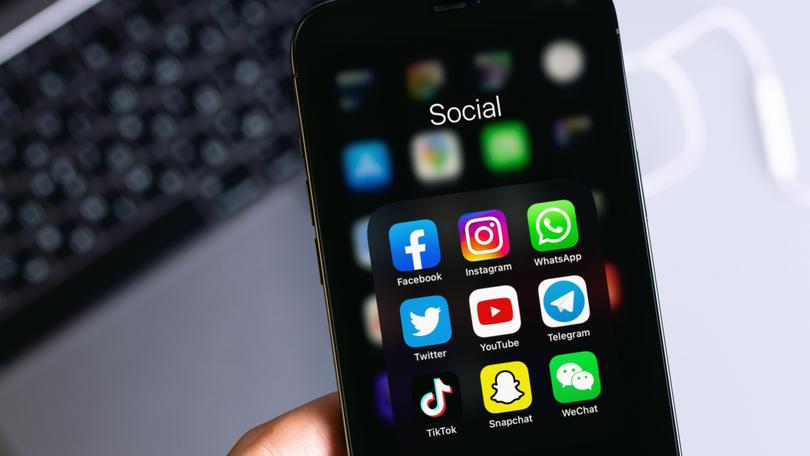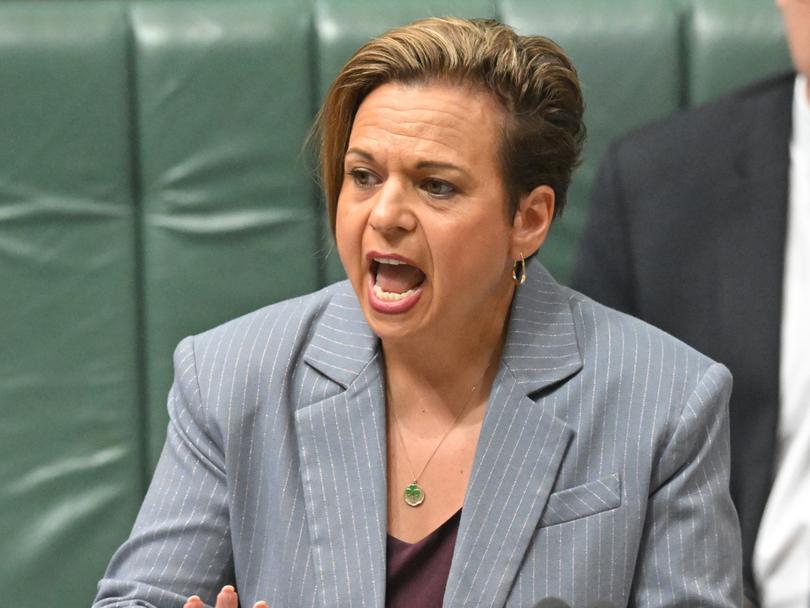News media bargaining code: Tech giants including Facebook, Tiktok told to strike news deals or face new taxes
The parent companies of Facebook, Google and TikTok face paying hundreds of millions of dollars to the government unless they strike fresh deals with media companies to pay for news content.

The parent companies of Facebook, Google and Tiktok face paying hundreds of millions of dollars to the government unless they strike fresh deals with media companies to pay for news content under a bid to maintain the viability of public interest journalism.
Starting from January 1, the government will set up a news bargaining incentive to strengthen the existing news media bargaining code struck in 2021.
It uses the tax system to make it cheaper for large tech companies running social media and search engines in Australia to strike deals with news organisations than to walk away.
Sign up to The Nightly's newsletters.
Get the first look at the digital newspaper, curated daily stories and breaking headlines delivered to your inbox.
By continuing you agree to our Terms and Privacy Policy.Companies that don’t reach agreements or strike low-ball deals will have to pay a tax which the government will distribute to media organisations.
Assistant Treasurer Stephen Jones and Michelle Rowland said the new arrangements closed loopholes and would ensure Australians could continue to access quality news content on digital platforms.
“Digital platforms receive huge financial benefits from Australia, and they have a social and economic responsibility to contribute to Australians’ access to quality journalism,” Mr Jones said.
Google and Meta struck deals with media companies including Seven West Media – the owner of this masthead – Nine, News Corp and the ABC worth about $200 million a year collectively after the Morrison government brought in the bargaining code.

But while Google has been renewing those deals, earlier this year Meta walked away and limited news content on its platforms.
In Canada, which followed Australia’s lead, Meta has blocked news media content entirely from Facebook and Instagram rather than pay publishers.
The new charges will apply to all social media and search companies that have annual Australian revenue above $250 million, whether they carry news content or not.
At this stage, it’s expected to capture Meta, Alphabet and Bytedance.
Any money the Government collects under the new arrangement would be distributed to media companies, not boost its budget bottom line.
But the balance will be struck to make it cheaper for the tech companies to reach agreements, with protections in place to stop them striking one large deal with a single media company.
While the details of the size of the charges and offsets are yet to be finalised, the Government says they will not be lower than the value of the agreements struck under the existing code.
Nor has it decided the criteria for distributing any money collected to media companies.
It will release a consultation paper for media and tech companies to respond to early in the new year, and hopes to legislate the new regime in the first part of the year.
The Government has also foreshadowed further announcements to support news media in its mid-year budget update next week.
“The Albanese Government is committed to a diverse and sustainable news media sector, given this is critical to the health of Australia’s democracy,” Ms Rowland said.
“Large digital platforms have an important role to play in providing access to news for all Australians and contributing to the sustainability of public interest journalism.”

